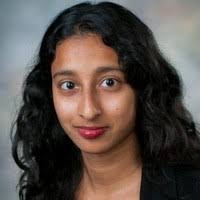Shih-Bo Huang: Following Your Role Model
 When Shih-Bo Huang was young, his parents told him some important advice.
When Shih-Bo Huang was young, his parents told him some important advice.
“Find a role model and find out what they did to be successful and follow it,” he explained.
So when he met his friend, Dr. Sheng-Yu Ku, who was also in the same undergrad and master’s program and who published his Ph.D. thesis in Science Magazine this year, he decided that he should follow the same path.
His former mentor in his undergrad and master’s program Dr. Chihuei Wang who received his Ph.D. degree from The University of Wisconsin-Madison and worked in Bristol-Myers Squibb before getting invited back to Kaohsiung Medical University also shared his amazing life and research experience in the United States, and encouraged Huang to study abroad and pursue doctoral programs in America like them.
“In biomedical sciences, there aren’t a lot of opportunities in Taiwan so I wanted to come to the United States. Studying a Ph.D. in the United States with advanced biomedical research and outstanding scientists from all over the world will broaden my horizon and prompt me think differently,” he said.
Huang decided to apply to the Integrated Biomedical Sciences doctoral program in UT Health San Antonio’s Graduate School of Biomedical Sciences with the future goal of becoming an oncology scientist. He was specifically interested in coming to San Antonio because of its culture and close proximity to Mexico.
“The Spanish language is quite interesting for me. I like to learn different types of languages especially 2ND popular spoken language, Spanish,” he said. “I think knowing different languages will help me broaden my friendships and become more competitive.”
 As an international student, Huang explained that navigating life in America has been challenging.
As an international student, Huang explained that navigating life in America has been challenging.
“I didn’t know how to pay the phone bill or internet or even how to open a bank account. In our country, 7/11 is a convenience store where we can pay bills, order tickets, receive parcels and do much more. So the first time I went to 7/11 and I asked to pay my phone bill, I realized things were different.”
Huang credits his Taiwanese friends in San Antonio for their help during his transition. He has also joined the newly formed International Student club to help students who are new to the city.
At the graduate school at UT Health San Antonio, Huang is in the Cancer Biology discipline, currently working in Dr. Pratap Kumar‘s lab on prostate cancer research.
“In one project, we found a protein, SIRT1, that is involved in prostate cancer progression and therapeutic resistance. So, understanding the  underlying mechanism of SIRT1-mediated cancer progression will guide us to optimize current therapies and enhance the effectiveness of the recent FDA-approved drugs,” he said. “I think if we can come out with optimal strategy, such as combination therapy, that would be good for patients with this disease.”
underlying mechanism of SIRT1-mediated cancer progression will guide us to optimize current therapies and enhance the effectiveness of the recent FDA-approved drugs,” he said. “I think if we can come out with optimal strategy, such as combination therapy, that would be good for patients with this disease.”
He is also working on another project with the natural compound, Nexrutine that a colleague of his, Dr. Suleman Hussain researched while a graduate student here.
 “[Dr. Hussain’s work] has moved onto clinical trials for prostate cancer management and I got chance to learn how that process works as well. We will also dig out the mechanism behind its cancer preventive property.”
“[Dr. Hussain’s work] has moved onto clinical trials for prostate cancer management and I got chance to learn how that process works as well. We will also dig out the mechanism behind its cancer preventive property.”
Huang recently went to Washington D.C. for the American Association for Cancer Research Annual Meeting.
“I met a lot of excellent scientists who have different points of view of my work and gave me plenty of good suggestions at the poster session, which is really helpful for my Ph.D. research and career development,” he said.
In the future, Huang would like to start up his own company with his friends who has the same interests in cancer research.
“Right now, drug development takes around 20 years to get FDA approval so I’d like to do something like develop techniques and create kits like CRISPR-Cas9 for scientists to do research, which will indirectly help people with less time and make some contributions for society during my life,” he said.
 This article was written by Charlotte Anthony, marketing specialist at the Graduate School of Biomedical Sciences at UT Health San Antonio. This article is part of the “Meet The Researcher” series which showcases researchers at the Graduate School of Biomedical Sciences at University of Texas Health Science Center San Antonio.
This article was written by Charlotte Anthony, marketing specialist at the Graduate School of Biomedical Sciences at UT Health San Antonio. This article is part of the “Meet The Researcher” series which showcases researchers at the Graduate School of Biomedical Sciences at University of Texas Health Science Center San Antonio.
